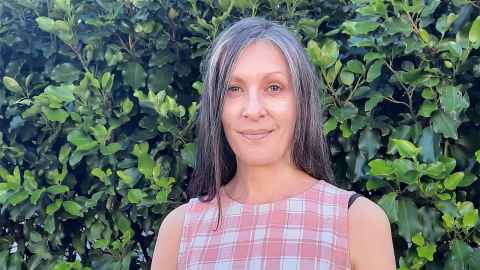Pākehā identity in changing times
19 July 2021
In parts of the world, including New Zealand, a series of major social movements are confronting racism and challenging the sense that being white is normal and preferred.

Movements such as Black Lives Matter are examples of Black, Indigenous and people of colour communities claiming their rights as equal citizens and equal cultures within white-dominant countries like the United States.
Closer to home, many Māori are asserting their rights to tino rangatiratanga (self-determination) as tangata whenua, which has recently been injected with new urgency through the occupation of, and resistance to, development on sacred sites around New Zealand.
Understanding the historical role of mass media in perpetuating racism, media outlet Stuff has recently apologised to Māori for their news reporting, and te reo Māori is now regularly spoken on radio and television news.
These changes remind us that Pākehā living in New Zealand are in a partnership with Māori.
They also affect Pākehā on a more individual level in workplaces and schools with some workplaces, such as Vodafone, Air New Zealand and all public sector organisations establishing renewed expectations that workers will uphold the Treaty of Waitangi. Next year both Pākehā and Māori histories will be taught in all New Zealand schools.
“These things combined may be creating a changed social environment for Pākehā, with new expectations for social conduct and new social sanctions for not meeting these expectations,” says PhD researcher Rachelle Pedersen from the University of Auckland’s School of Psychology.
“So a key question is, how are Pākehā handling this time of significant change? Are they noticing changes in their day-to-day lives, and how are they making sense of and navigating them? That is what my research aims to find out.”
Rachelle is looking for Pākehā / NZ European participants to explore these topics in focus group discussions. The focus groups are one-off and around two hours long. They will be lively and interesting discussions which may help explore some new ways of thinking about this important topic. Participants will receive a $40 supermarket voucher as a thank you for their time and contribution.
“As we continue to understand what being a treaty-based nation means, there will continue to be changes that ask Pākehā to rethink the nature of their relationship with Māori,” says Rachelle.
“Understanding how these changes are being seen and navigated by Pākehā is critical to building a future based in te Tiriti o Waitangi.”
If you identify as Pākehā or NZ European and would like to be involved, please contact: pakehaidentitystudy@gmail.com
Media contact
Anne Beston | Media adviser
DDI 09 923 3258
Mob 021 970 089
Email a.beston@auckland.ac.nz